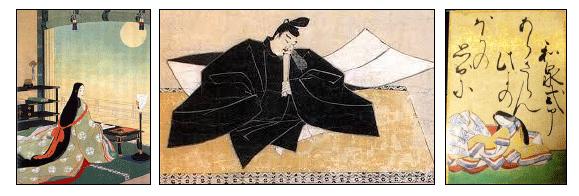Introducing the members of my family
Content: Introducing the members of my family more in details.
Aim: What are the age and birthday of your family members?
New Vocabulary:
Japanese | Romaji | English |
おばさん おばちゃん | Obasan Obachan | aunt |
おじさん おじちゃん | Ojisan Ojichan | uncle |
きょうだい | kyoodai | Sibling(s), brothers |
あと | ato | Remaining, what’s left is |
おたんじょうび(review of lesson 17) | Otanjoobi | birthday |
さい (review of lesson 17) | Sai | Years old |
がつ(月) | gatsu | Month (only for the name of the month, but not to describe the duration.) |
にち (日) | nichi | Day (only for the name of the month, but not to describe the duration.) |
あげます | Age masu | To give |
かいます | Kai masu | To buy |
こども | Kodomo | Child(children) |
クリスマス | kurisumasu | Christmas |
プレゼント | purezento | Present |
Month |
|
| Pronunciation | Date |
| Pronunciation |
January | 1がつ | 1月 | Ichi gatsu | 1st | ついたち 1日 | tsuitachi |
February | 2がつ | 2月 | Ni gatsu | 2nd | ふつか 2日 | futsuka |
March | 3がつ | 3月 | San gatsu | 3rd | みっか 3日 | mikka |
April | 4がつ | 4月 | Shi gatsu | 4th | よっか 4日 | yokka |
May | 5がつ | 5月 | Go gatsu | 5th | いつか 5日 | itsuka |
June | 6がつ | 6月 | Roku gatsu | 6th | むいか 6日 | muika |
July | 7がつ | 7月 | Shichi gatsu | 7th | なのか 7日 | nanoka |
August | 8がつ | 8月 | Hachi gatsu | 8th | ようか 8日 | Yooka |
September | 9がつ | 9月 | Ku gatsu | 9th | ここのか 9日 | kokonoka |
October | 10がつ | 10月 | Juu gatsu | 10th | とおか 10日 | Tooka |
November | 11がつ | 11月 | Juu ichi gatsu | 11th | 11日 | Juu ichi nichi |
December | 12がつ | 12月 | Juu ni gatsu | 20th | 20日 | Hatsuka |
Lesson Point:
· Please pay attention to April, July and September. April is shi-gatsu, not yon-gatsu, July is shichi-gatsu, not nana-gatsu, and September is ku-gatsu, not kyuu-gatsu.
· The 1st to the10th, and the 20th of the month are counted differently. Any other days are counted and read like regular numbers, and simply add the counter word “nichi” to indicate the day of the month.
Sample Sentences:
1月28日はわたしのおばあちゃんのたんじょうびです。(January 28th is my grandma’s birthday.)
Ichi gatsu nijuu hachi nichi wa watachi no obaachan no tanjoobi desu.
おばあちゃんは87さいです。(My grandma is 87 years old.)
Obaachan wa hachi juu nana sai desu.
あと3日でおばあちゃんのたんじょうびです。(It will be grandma’s birthday in 3 days.)
Ato mikka de obaachan no tanjoobi desu.
おばあちゃんのたんじょうびには、なにをあげますか?(What are you going to give your grandmother for her birthday?)
Obaachan no tanjoobi niwa nani o agemasu ka?
あかいてぶくろをかいます。(I buy red gloves.)
Akai tebukuro o kaimasu.
たなかさんのこどもの*たんじょうびは、12月25日です。(Mr. Tanaka’s kid’s birthday is December 25th.)
Tanaka san no kodomo no tanjoobi wa juuni gatsu nijuu go nichi desu.
こどもの*おたんじょうびには、なにをあげますか?(What are you going to give your child for his/her birthday?)
Kodomo no otanjoobi ni wa nani o agemasu ka?
クリスマスのプレゼントをあげます。(I give Christmas presents.)
Kurisumasu no purezento to o age masu.
*おたんじょうび vs たんじょうび. The honorific “お” can be added to in front of some nouns.
| S-24-1 |
Mini-quiz:
Let’s practice writing some words in Katakana and kanji
Write the below sentences in Japanese. Write underlined words in Katakana, and double underlined words in Kanji.
l kurisumasu wa 12gatsu 25nichi desu. (Christmas is December 25th.)
l Ana wa 8gatsu 10ka ni supein kara kimashita. (Ana came from Spain on August 10th.)
(Answers:クリスマスは12月25日です。アナは8月10日にスペインからきました)
Writing Practice:
The kanji for month月is modeled after a crescent moon. The kanji for day日is from the sun.

Let’s practice writing月and 日by following the stoke order.
Gatsu(month) – also pronounced “Tsuki” which means Moon

Nichi (day) – also pronounced “bi” which means sun.

